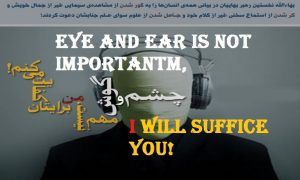One of the principles of Baha’ism which is being posed as a new one is the principle of removal each kind of orejudices. As Abdul Baha has said: “The fifth teaching of Excellency Bahaullah is that the sexual, religious and political bigotries destroy the foundation of human being and prejudices destroy the basis of human being. As long as these prejudices arent removed, it will be impossible for the humane world to be relaxed.[1]“
Criticism:
Some ethical virtues are located near the ethical wicked acts.if their limitations and conditions arent paid attention, it will be possible for a person to be afflicted by an ethical wicked act instead of the ethical virtue.
Prejudice and zeal are of these features which zeal is of the ethical virtues and the blind prejudice is of the ethical wicked acts. Both of them are reactions done when the human beings want to preserve his/her beleifs and properties. However, they are different from another perspective. If the cover of a belief or action is false without any reason for its legitimacy, it will be prejudice and insisting on it will be a dirty action.
Fightings for preserving homeland, religion and chastity will be considered as of the highest ethical values.to such an extent that Islam has called its killed ones as martyrs. It can be said that the lack of this feature in human being will be an intrinsic and innate deviation. In Islamic narrations, zeal has been stressed to such an extent that this feature has been introduced as a sign of faith:
“الغیره من الایمان و البذاء من النفاق”
“Zeal is a sign of faith and lack of Zeal is of hypocrisy.[2]“
Now, lack of Zeal in Baha’ism is a false word. Because Zeal is an ethical virtue and its removal is against the temperament, humanity and intellectuality.
The holy prophet (P.H.) says:
“مَن کانَ فِی قَلبِهِ حَبَّهٍ مِن خَردَلٍ مِن عصبیه بعثه اللهُ یَومَ القیَامَه مَعَ اعراب الی هلیه”[۳]
[۱] Abbas Effendi, the Sermons, Germany, the assembly of publishing the faith works, Bita, Vol. 2, p. 147.
[۲] The great scholar Majlesi, Beharul Anwar, Beirout, Al-Vafa institute, 1403 A.H., Vol. 71, p. 342.
۳٫sheikh Koleini, Kafi principles, Tehran: Darul Kotob Al-Islamieh, 1365 S.H., Vol. 2, p. 308.






